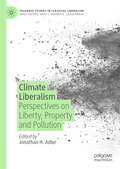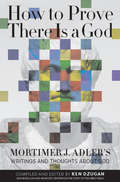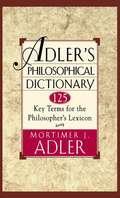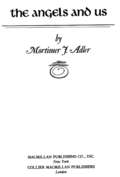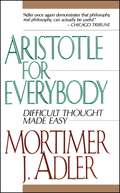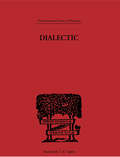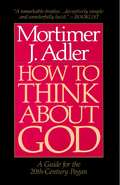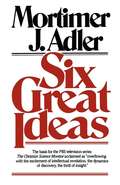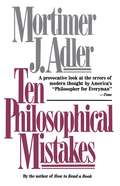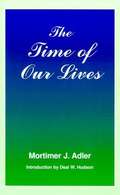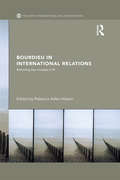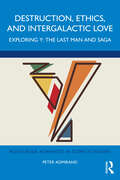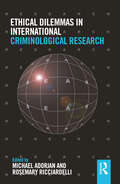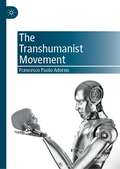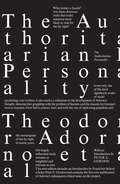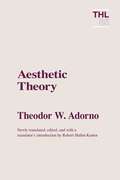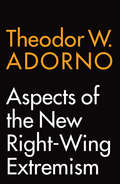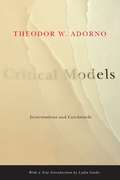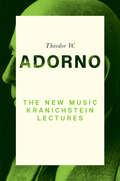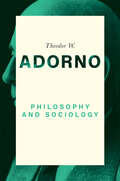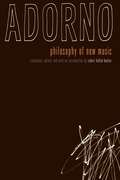- Table View
- List View
Climate Liberalism: Perspectives on Liberty, Property and Pollution (Palgrave Studies in Classical Liberalism)
by Jonathan H. AdlerClimate Liberalism examines the potential and limitations of classical-liberal approaches to pollution control and climate change. Some successful environmental strategies, such as the use of catch-shares for fisheries, instream water rights, and tradable emission permits, draw heavily upon the classical liberal intellectual tradition and its emphasis on property rights and competitive markets. This intellectual tradition has been less helpful, to date, in the development or design of climate change policies. Climate Liberalism aims to help fill the gap in the academic literature examining the extent to which classical-liberal principles, including an emphasis on property rights, decentralized authority and dynamic markets, can inform the debate over climate-change policies. The contributors in this book approach the topic from a range of perspectives and represent multiple academic disciplines. Chapters consider the role of property rights and common-law legal systems in controlling pollution, the extent to which competitive markets backed by legal rules encourage risk minimization and adaptation, and how to identify the sorts of policy interventions that may help address climate change in ways that are consistent with liberal values.
Philosophy Of Judaism
by Joshua AdlerA survey of the sociological and cultural aspects of Judaism in society today.
How to Prove There Is a God
by Mortimer Adler Ken DzuganOne of the great tasks of Mortimer Adler's illustrious life was his search for a watertight proof of the existence of God. Adler believed that his search had been successful.Adler spent years studying the classic proofs of God's existence, especially Aquinas's Five Ways, and found shortcomings in all of them, as conventionally understood. But he thought that some of them contained ideas which, if properly developed, could be improved, and he continued to search for a satisfying and logically unassailable proof. Toward the end of the 1970s, he believed he had arrived at such a proof, which he presented in his historic work, How to Think about God (1980). In the writings assembled in How to Prove There Is a God, Adler gives us his approach to the question of God's existence in fresh and popular form. He defends his position against critics, both believers and skeptics. The book includes a transcript of one of Adler's appearances on William Buckley's Firing Line, Adler's revealing interview with Edward Wakin, the exchange of views on natural theology between Adler and Owen Gingerich, and John Cramer's eloquent argument that the trend of modern cosmology supports Adler's early struggles with the question of God's existence.
Adler's Philosophical Dictionary
by Mortimer J. AdlerThe terms and concepts that have simulated thinkers from Aristotle onward come to life in the latest work by the man TIME magazine has called "America's philosopher for everyman". Is the human soul immortal? What does it mean to know something? What is the nature of erotic love? Adler examines these questions as well as many others with his trademark clarity, rigor, and common sense.
Angels and Us
by Mortimer J. AdlerMortimer Adler has always been ahead of his time. In 1982, before the current revival of interest in angels, Dr. Adler published "The Angels and Us", an engaging look at the various images and hierarchies of angels (including guardian angels). Dr. Adler, the bestselling author of "Ten Philosophical Mistakes", "Aristotle for Everybody", and "The Great Ideas", speculates on the existence of angels; why Jews, Christians, and Muslims believe in angels, and the ways angels have been viewed as objects of religious belief and philosophical thought. This is a wonderfully enlightening work on the affinities between angels and human beings.
Aristotle for Everybody
by Mortimer J. AdlerAristotle (384 - 322 B.C.) taught logic to Alexander the Great and, by virtue of his philosophical works, to every philosopher since, from Marcus Aurelius, to Thomas Aquinas, to Mortimer J. Adler. Now Adler instructs the world in the "uncommon common sense" of Aristotelian logic, presenting Aristotle's understandings in a current, delightfully lucid way. He brings Aristotle's work to an everyday level. By encouraging readers to think philosophically, Adler offers us a unique path to personal insights and understanding of intangibles, such as the difference between wants and needs, the proper way to pursue happiness, and the right plan for a good life.
Dialectic: Towards The Foundations Of Political Philosophy (International Library of Philosophy)
by Mortimer J. AdlerFirst published in 2000. Routledge is an imprint of Taylor & Francis, an informa company.
How to Think About God: A Guide for the 20th-Century Pagan
by Mortimer J. AdlerDr. Adler, in his discussion, extends and modernizes the argument for the existence of God developed by Aristotle and Aquinas. Without relying on faith, mysticism, or science (none of which, according to Dr. Adler, can prove or disprove the existence of God), he uses a rationalist argument to lead the reader to a point where he or she can see that the existence of God is not necessarily dependent upon a suspension of disbelief. Dr. Adler provides a nondogmatic exposition of the principles behind the belief that God, or some other supernatural cause, has to exist in some form. Through concise and lucid arguments, Dr. Adler shapes a highly emotional and often erratic conception of God into a credible and understandable concept for the lay person.
Six Great Ideas
by Mortimer J. AdlerThis enlightening study is the result of group discussions at Dr. Adler's annual seminar in Aspen, Colorado, and conversations between Dr. Adler and Bill moyers filmed for public television.Each summer, Mortimer J. Adler conducts a seminar at the Aspen Institute in Colorado. At the 1981 seminar, leaders from the worlds of business, literature, education, and the arts joined him in an in-depth consideration of the six great ideas that are the subject of this book: Truth, Goodness, and Beauty - the ideas we judge by; and Liberty, Equality and Justice - the ideas we act on. The group discussions and conversations between Dr. Adler and journalist Bill Moyers were filmed for broadcast on public television, and thousands of people followed their exploration of these important ideas. Discarding the out-worn and off-putting jargon of academia, Dr. Adler dispels the myth that philosophy is the exclusive province of the specialist. He argues that "philosophy is everybody's business," and that a better understanding of these fundamental concepts is essential if we are to cope with the political, moral, and social issues that confront us daily.
Ten Philosophical Mistakes
by Mortimer J. AdlerExamines ten errors in modern thought and shows how they have led to serious consequences in our everyday lives. Tells how they came about, how to avoid them, and how to counter their negative effects.
The Time Of Our Lives: The Ethics Of Common Sense
by Mortimer J. Adler Deal HudsonIs it a good time to be alive? Is ours a good society to be alive in? Is it possible to have a good life in our time? And finally, does a good life consist of having a good time? Are happiness and "a good life" interchangeable? These are the questions that Mortimer Adler addresses himself to. The heart of the book lies in its conception of the good life for man, which provides the standard for measuring a century, a society, or a culture: for upon that turns the meaning of each man's primary moral right - his right to the pursuit of happiness. The moral philosophy that Dr. Adler expounds in terms of this conception he calls "the ethics of common sense," because it is as a defense and development of the common-sense answer to the question "can I really make a good life for myself?"
Great Books of The Western World 9: The Works of Aristotle Volume II
by Mortimer J. Adler W. D. RossThe volume II contains the works of Aristotle.
Health Communism: A Surplus Manifesto
by Beatrice Adler-Bolton Artie VierkantA searing analysis of health and illness under capitalism from hosts of the hit podcast &“Death Panel&” In this fiery, theoretical tour-de-force, Beatrice Adler-Bolton and Artie Vierkant offer an overview of life and death under capitalism and argue for a new global left politics aimed at severing the ties between capital and one of its primary tools: health. Written by co-hosts of the hit &“Death Panel&” podcast and longtime disability justice and healthcare activists Adler-Bolton and Vierkant, Health Communism first examines how capital has instrumentalized health, disability, madness, and illness to create a class seen as &“surplus,&” regarded as a fiscal and social burden. Demarcating the healthy from the surplus, the worker from the &“unfit&” to work, the authors argue, serves not only to undermine solidarity but to mark whole populations for extraction by the industries that have emerged to manage and contain this &“surplus&” population. Health Communism then looks to the grave threat capital poses to global public health, and at the rare movements around the world that have successfully challenged the extractive economy of health. Ultimately, Adler-Bolton and Vierkant argue, we will not succeed in defeating capitalism until we sever health from capital. To do this will require a radical new politics of solidarity that centers the surplus, built on an understanding that we must not base the value of human life on one&’s willingness or ability to be productive within the current political economy. Capital, it turns out, only fears health.
Bourdieu in International Relations: Rethinking Key Concepts in IR (New International Relations)
by Rebecca Adler-NissenThis book rethinks the key concepts of International Relations by drawing on the work of Pierre Bourdieu. The last few years have seen a genuine wave of publications promoting sociology in international relations. Scholars have suggested that Bourdieu’s vocabulary can be applied to study security, diplomacy, migration and global environmental politics. Yet we still lack a systematic and accessible analysis of what Bourdieu-inspired IR might look like. This book provides the answer. It offers an introduction to Bourdieu’s thinking to a wider IR audience, challenges key assumptions, which currently structure IR scholarship – and provides an original, theoretical restatement of some of the core concepts in the field. The book brings together a select group of leading IR scholars who draw on both theoretical and empirical insights from Bourdieu. Each chapter covers one central concept in IR: Methodology, Knowledge, Power, Strategy, Security, Culture, Gender, Norms, Sovereignty and Integration. The chapters demonstrate how these concepts can be reinterpreted and used in new ways when exposed to Bourdieusian logic. Challenging key pillars of IR scholarship, Bourdieu in International Relations will be of interest to critical theorists, and scholars of IR theory.
Destruction, Ethics, and Intergalactic Love: Exploring Y: The Last Man and Saga (Routledge Advances in Comics Studies)
by Peter AdmirandDestruction, Ethics, and Intergalactic Love: Exploring Y: The Last Man and Saga offers a creative and accessible exploration of the two comic book series, examining themes like nonviolence; issues of gender and war; heroes and moral failures; forgiveness and seeking justice; and the importance of diversity and religious pluralism. Through close interdisciplinary reading and personal narratives, the author delves into the complex worlds of Y and Saga in search of an ethics, meaning, and a path resonant with real-world struggles. Reading these works side by side, the analysis draws parallels and seeks common themes around the four central ideas of seeking and making meaning in a meaningless world; love and parenting through oppression and grief; peacefulness when surrounded by violence; and the perils and hopes of diversity and communion. This timely and thoughtful study will resonate with scholars and students of comic studies, media and cultural studies, philosophy, theology, literature, psychology, and popular culture studies.
Ethical Dilemmas in International Criminological Research (Routledge Advances in Criminology)
by Michael Adorjan Rosemary RicciardelliBuilding on the editors’ previous publication, Engaging with Ethics in International Criminological Research, this new book brings together a fresh collection of leading international scholars tackling ethical dilemmas in criminological research. Contributors address how they have experienced and addressed ethical issues in their research, and how they have balanced the benefits and harms of doing such research for both the researcher and the researched. Ethical Dilemmas in International Criminological Research draws on various issues across a range of jurisdictions and political and social contexts, including cybercrime and transgressive online actions; state and police responses to crime; the war on drugs; working with traumatised participants in criminological research; punishment and prison; and sex, sexualities, and gender. Moreover, this collection aims to offer a truly international perspective, including insights from research projects in the Global South. This book is essential reading for junior scholars just starting out with original research, as well as more seasoned researchers looking to gain insights into the challenges of criminological research in other cultural contexts. It is also instructive reading for students taking courses in criminological and social research methods.
The Transhumanist Movement
by Francesco Paolo AdornoThe book is published as part of the "PRIN 2017 The Dark side of the Law".This volume analyzes the theoretical underpinnings of the academic transhumanism movement, beginning with the relationship between anthropology and technique. The author focuses on the question of immortality, which can be considered the core of transhumanism. The true depth of immortality will be discussed, through which and how many transformations could be produced in order to change our society, which is basically shaped by and for human mortal beings, in a society composed by immortal persons. Some writers have written about what a future populated with immortals might look like, which is far removed from both the bright future painted by transhumanists and from the disappearance of humanity feared by bioconservatives.
The Authoritarian Personality
by Theodor Adorno Else Frenkel-Brunswik Daniel J. Levinson R. Nevitt SanfordA new edition of this classic study of the origins of anti-SemitismBringing together the findings of psychoanalysis and social science, this book grew out of an urgent commitment to study the origins of anti-Semitism in the aftermath of Hitler's Germany. First published in 1951, it was greeted as a monumental study blazing new trails in the investigation of prejudice. As offshoots of ethnocentrism, anti-semitism and fascism cast new and dark shadows on the world, the topic again demands study and social action. "The Authoritarian Personality" remains an important document for our time.
Aesthetic Theory: Construction Of The Aesthetic (Theory and History of Literature #88)
by Theodor W. AdornoPerhaps the most important aesthetics of the twentieth century appears here newly translated, in English that is for the first time faithful to the intricately demanding language of the original German.The culmination of a lifetime of aesthetic investigation, Aesthetic Theory is Adorno&’s major work, a defense of modernism that is paradoxical in its defense of illusion. In it, Adorno takes up the problem of art in a day when &“it goes without saying that nothing concerning art goes without saying.&” In the course of his discussion, Adorno revisits such concepts as the sublime, the ugly, and the beautiful, demonstrating that concepts such as these are reservoirs of human experience. These experiences ultimately underlie aesthetics, for in Adorno&’s formulation &“art is the sedimented history of human misery.&”Robert Hullot-Kentor&’s translation painstakingly, yet fluently, reproduces the nuances and particularities of the original. Long awaited and significant, Aesthetic Theory is the clarifying lens through which the whole of Adorno&’s work is best viewed, providing a framework within which his other major writings cohere.
Aspects of the New Right-Wing Extremism
by Theodor W. AdornoOn 6 April 1967, at the invitation of the Socialist Students of Austria at the University of Vienna, Theodor W. Adorno gave a lecture which is not merely of historical interest. Against the background of the rise of the National Democratic Party of Germany, which had enjoyed remarkable electoral success in the first two years after its formation in November 1964, Adorno analysed the goals, resources and tactics of the new right-wing nationalism of this time. Contrasting it with the ‘old’ fascism of the Nazis, Adorno gave particular attention to the ways in which far-right movements elicited enthusiastic support in sections of the West German population, 20 years after the war had ended. Much has changed since then, but some elements have remained the same or resurfaced in new forms, 50 years later. Adorno’s penetrating analysis of the sources of right-wing radicalism is as relevant today as it was five decades ago. It is a prescient message to future generations who find themselves embroiled once again in a struggle against a resurgent nationalism and right-wing extremism.
Critical Models: Interventions and Catchwords (European Perspectives: A Series in Social Thought and Cultural Criticism)
by Theodor W. AdornoCritical Models combines into a single volume two of Adorno's most important postwar works — Interventions: Nine Critical Models (1963) and Catchwords: Critical Models II (1969). Written after his return to Germany in 1949, the articles, essays, and radio talks included in this volume speak to the pressing political, cultural, and philosophical concerns of the postwar era. The pieces in Critical Models reflect the intellectually provocative as well as the practical Adorno as he addresses such issues as the dangers of ideological conformity, the fragility of democracy, educational reform, the influence of television and radio, and the aftermath of fascism. This new edition includes an introduction by Lydia Goehr, a renowned scholar in philosophy, aesthetic theory, and musicology. Goehr illuminates Adorno's ideas as well as the intellectual, historical, and critical contexts that shaped his postwar thinking.
The New Music: Kranichstein Lectures
by Theodor W. AdornoA year after the end of the Second World War, the first International Summer Course for New Music took place in the Kranichstein Hunting Lodge, near the city of Darmstadt in Germany. The course, commonly referred to later as the Darmstadt course, was intended to familiarize young composers and musicians with the music that, only a few years earlier, had been denounced as degenerate by the Nazi regime, and it soon developed into one of the most important events in contemporary music. Having returned to Germany in 1949 from exile in the United States, Adorno was a regular participant at Darmstadt from 1950 on. In 1955 he gave a series of lectures on the young Schoenberg, using the latter’s work to illustrate the relation between tradition and the avant-garde. Adorno’s three double-length lectures on the young Schoenberg, in which he spoke as a passionate advocate for the composer whom Boulez had declared dead, were his first at Darmstadt to be recorded on tape. The relation between tradition and the avant-garde was the leitmotif of the lectures that followed, which continued over the next decade. Adorno also dealt in detail with problems of composition in contemporary music, and he often accompanied his lectures with off-the-cuff musical improvisations. The five lecture courses he gave at Darmstadt between 1955 and 1966 were all recorded and subsequently transcribed, and they are published here for the first time in English. This volume is a unique document on the theory and history of the New Music. It will be of great value to anyone interested in the work of Adorno and critical theory, in German intellectual and cultural history, and in the history of modern music.
Philosophy and Sociology: 1960
by Theodor W. AdornoIn summer 1960, Adorno gave the first of a series of lectures devoted to the relation between sociology and philosophy. One of his central concerns was to dispel the notion, erroneous in his view, that these were two incompatible disciplines, radically opposed in their methods and aims, a notion that was shared by many. While some sociologists were inclined to dismiss philosophy as obsolete and incapable of dealing with the pressing social problems of our time, many philosophers, influenced by Kant, believed that philosophical reflection must remain ‘pure’, investigating the constitution of knowledge and experience without reference to any real or material factors. By focusing on the problem of truth, Adorno seeks to show that philosophy and sociology share much more in common than many of their practitioners are inclined to assume. Drawing on intellectual history, Adorno demonstrates the connection between truth and social context, arguing that there is no truth that cannot be manipulated by ideology and no theorem that can be wholly detached from social and historical considerations. This systematic account on the interconnectedness of philosophy and sociology makes these lectures a timeless reflection on the nature of these disciplines and an excellent introduction to critical theory, the sociological content of which is here outlined in detail by Adorno for the first time.
Philosophy of New Music
by Theodor W. AdornoAn indispensable key to Adorno&’s influential oeuvre—now in paperbackIn 1949, Theodor W. Adorno&’s Philosophy of New Music was published, coinciding with the prominent philosopher&’s return to a devastated Europe after his exile in the United States. Intensely polemical from its first publication, every aspect of this work was met with extreme reactions, from stark dismissal to outrage. Even Arnold Schoenberg reviled it. Despite the controversy, Philosophy of New Music became highly regarded and widely read among musicians, scholars, and social philosophers. Marking a major turning point in his musicological philosophy, Adorno located a critique of musical reproduction as internal to composition, rather than a matter of musical performance. Consisting of two distinct essays, &“Schoenberg and Progress&” and &“Stravinsky and Reaction,&” Philosophy of New Music poses the musical extremes in which Adorno perceived the struggle for the cultural future of Europe: between human emancipation and barbarism, between the compositional techniques and achievements of Schoenberg and Stravinsky. In this translation, which is accompanied by an extensive introduction by distinguished translator Robert Hullot-Kentor, Philosophy of New Music emerges as an essential guide to the whole of Adorno's oeuvre.
Correspondence: 1923 - 1966
by Theodor W. Adorno Siegfried KracauerTheodor W. Adorno and Siegfried Kracauer were two of the most influential philosophers and cultural critics of the 20th century. While Adorno became the leading intellectual figure of the Frankfurt School, Kracauer’s writings on film, photography, literature and the lifestyle of the middle classes opened up a new and distinctive approach to the study of culture and everyday life in modern societies.This volume brings together for the first time the long-running correspondence between these two major figures of German intellectual culture. As left-wing German Jews who were forced into exile with the rise of Nazism, Adorno and Kracauer shared much in common, but their worldviews were in many ways markedly different. These differences become clear in a correspondence that ranges over a great diversity of topics, from the nature of criticism and the meaning of utopia to the work of their contemporaries, including Bloch, Brecht and Benjamin. Where Kracauer embraced the study of new mass media, above all film, Adorno was much more sceptical. This is borne out in his sharp criticism of Kracauer’s study of the composer Offenbach, which Adorno derided as musically illiterate, as well as his later criticism of Kracauer’s Theory of Film. Exposing the very different ways that both men were grappling intellectually with the massive transformations of the 20th century, these letters shed fresh light on the principles shaping their work at the same time as they reveal something of the intellectual brilliance and human frailties of these two towering figures of 20th century thought. This unique volume will be of great value to anyone interested in critical theory and in 20th century intellectual and cultural history.
